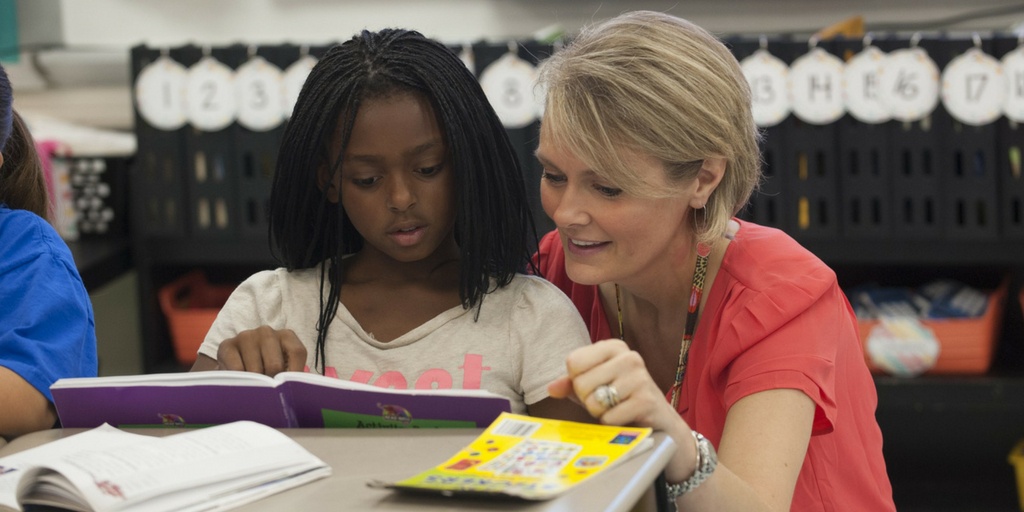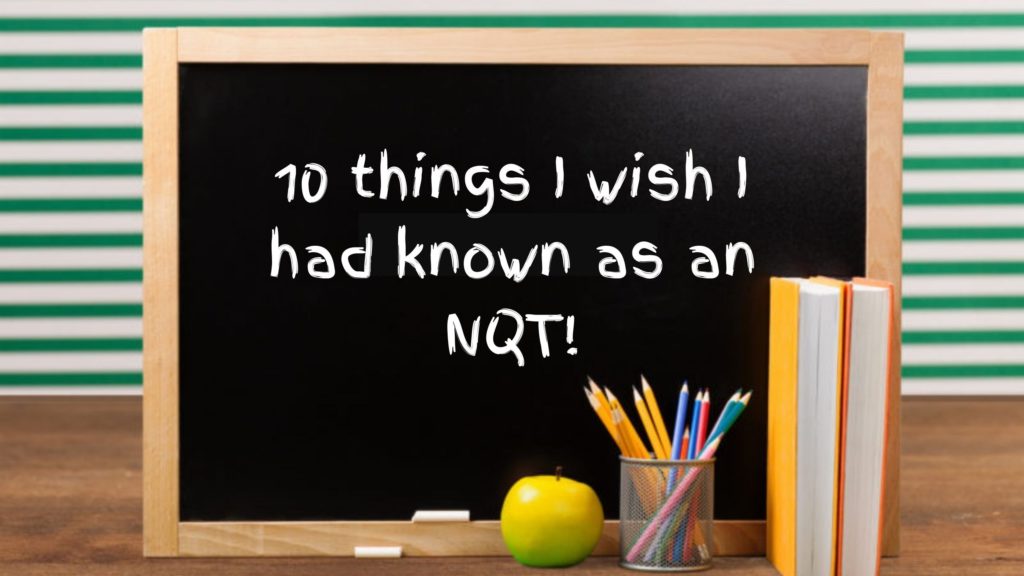What does being September ready” mean?”

Most teaching and school staff are usually back in the final week of the Summer holidays – feeling relaxed and looking bronzed. Those bags under the eyes and worn out expressions from late night marking, data analysis and writing umpteen reports have gone. Everyone is glowing from having the time to actually rest!
July seems to be a far distant memory – even if it is only six weeks ago!
The Summer sizzle is over and the chill in the air, despite being August– the final month of Summer, reminds us that Autumn is near.
The Autumn term is the longest in the academic year and can be the busiest and possibly the hardest. It is the time when you build the foundations of a successful year by ensuring you are “September ready”.
Classrooms and the schools are gleaming after being deep cleaned over the holidays. This is the busiest time for premises staff! New policies and priorities on the school improvement agenda are launched by senior and middle leaders – usually crammed into the INSET days in September.
“How you start the year, no matter what post you hold – will often determine how the year progresses!”
Routines are introduced, established and embedded with pupils and school staff. September also means that all children and young people have the chance to recreate themselves -hopefully for the better!
New exercise books and the chance to meet new teachers and learn new things means that they can start a new page literally.
Senior leaders, office staff, premises staff and teaching staff all need to be September ready in order to have a great year.
If you are an NQT, or starting a new post in a school or a new year group, this is the time to start afresh. You can further improve yourself as a professional and identify those goals you want to achieve and have a successful year.

So what does being September ready mean for teaching staff? Here are a few tips to help guide you as a teacher:
- Assess and Review constantly!
As your pupils’ new teacher, study and know their Summer data before they start. However, don’t get hung up on it. Identify the groups that you need to push. However, it is still hard data. Once children start – think about who they are and their learning styles.Start liaising with relevant staff and plan your interventions. The drive for progress starts from day one. Get children to do a writing piece even on the first day. Children will want to please you and it will allow you to assess what they can do. You can decide for yourself who needs support and who may have become complacent or has regressed over the holidays.By the end of the first week, try to hear every child read with one of their chosen books. Don’t leave this to the teaching assistant. By hearing them read, you will be able to find out if they are reading the right book and challenging themselves. You will also be able to plan your reading sessions.
Target poor and reluctant readers by getting them to be heard read at least once a day with support staff or you (if you have time). Furthermore, make sure every child has an appropriate reading book sent home in the first week- parents will be keen to get learning started straight away!
- Be organized! Plan your lessons for the first two weeks! Marking and feedback will start immediately and you will be exhausted! You haven’t really worked for six weeks and suddenly you feel like a tsunami has hit you. Reflect and evaluate each day and improve. Have the next two days’ resources ready in advance so you don’t feel stressed.

- Write a speech for that first day!
The first day is always tricky and even experienced teachers can feel nervous. Write a speech introducing yourself and why you want to teach. Tell them about yourself and get them to tell you about themselves. Remind them how you have been looking forward to meeting them all summer and set expectations straight away! Children love the personal touch. - Create the book corner!
Think about how you want your book corner to look. If you are a primary teacher – reading is central to the curriculum. Your book corner should be inviting and exciting –encouraging children to read for pleasure. Your school may have a set policy on how it should look.“…by planning your lessons for the first two weeks with parallel staff, it will give you a sense of direction and also headspace”
Ensure you have a range of genres which include fiction and non-fiction books. Try to sort out books in genres and label carefully so children can self-select. Throw out really tatty books but check with senior staff first. If you are short on books – speak to the English subject leader and also see if you can have a budget to buy books. Charity shops sell fantastic books at bargain prices.
- Have your classroom set up- ready for learning!
Try to have things labelled and organised before September. Plan the seating areas so that it is ergonomic and you allow children to be able to flow freely. They may not be in yet, but try to visualise how 30 pupils plus you and, if you have a TA, will move around in the classroom.Think about whether you want to have a carpeted space for teaching? Where will your book corner be? How will you store exercise books and if children can access them? Where will your desk be? Plan your display boards – what will they have on them? Where will you decide to have your learning walls and zones? Can all children access them?All these things need to be done before September (as once teaching and learning start you won’t have time). You may want to re-jig things once term starts but it is crucial that you have things September ready.

- Have your classroom resources ready!
Have a clear idea of what you want your classroom to look like. Do your research. Have interesting resources and objects of curiosity which engage learners. Be discerning with the resources you use!Don’t just use resources from branded websites. It is easy to do. However, a bespoke and clearly thought out classroom with carefully planned resources arouses curiosity in people of all ages and roles. - Ensure your classroom is clean and tidy before you start!
While your classroom will have been deep cleaned, the cleaners or premises staff will not have touched the insides of cupboards or desk trays etc. If you are inheriting a classroom from another teacher, you may be pleasantly surprised as they may have left it immaculate, ready for you to start setting up your classroom. Some teachers though can leave the classrooms in a mess!Sadly, you may find that you are having to clear out someone else’s junk. Be prepared! Ask the premises officer for bin bags and cleaning products so that you can clear out things properly. Nobody should have to be Mr or Ms Mop – but try to remember the classroom will be your professional home. Once term starts, you won’t have the time. Make it yours!“Be firm but fair and use positive praise. Have high expectations of behaviour and stick to the behaviour policy in the school.”
- Set aside a few days in the holidays to get things sorted!
Yes – days in August are still part of your holiday. However, try to set aside at least two days to sort your classroom. It is crucial as once you start in September, there is no or very little time.Suddenly that two-day INSET where you seem to think you have “bags of time” will disappear. The INSET days are usually crammed with training, phase and department meetings. - Display and celebrate children’s work right from the start!
Think about how you want to celebrate children’s work and put their learning up. Ensure it is quality and carefully presented. Do it as soon as you can in September. Children love seeing their learning celebrated in all forms. By creating the displays – you are showing them how much you value their learning and also defining your expectations and style of teaching.

- Establish routines and expectations and “Don’t smile before Christmas!”
In the first two weeks spend time rehearsing routines such as lining up and how to behave when in the classroom and moving around the school. Your behaviour management strategies will be on view to the whole school.Scary – but stay calm and focused on expecting excellent behaviour from your class. Children soon find out who is in charge! Mean what you say and carry out appropriate sanctions. That old saying, “Don’t smile before Christmas” really does work.
In addition, make sure children know how to look after their books. Use the school presentation policy. Teach them to write the date and underline correctly if they are in KS2 and above. Show them how to set out their maths workings out. Your books are the evidence of your teaching and learning and your relationship with your pupils.
September is a really important time of the year. Everything is new and it is your chance to have the best start for you and the children. More importantly, the children deserve it. Don’t be scared to ask for help – it gets tough and overwhelming at times.
It is an adventure meeting your new class and taking them on until July. Planned carefully and thoughtfully, it can be the most amazing journey! Before you know it, it will be October and the half-term holiday will be a welcome bliss!








Responses